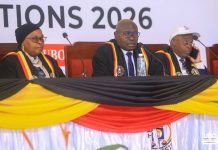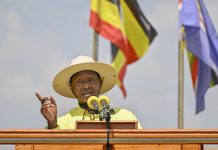The Deputy Executive Secretary of the United Nations Economic Commission for Africa (UNECA), Mr. Antonio Pedro, has issued a strong call for African leaders to reposition employment creation, particularly for youth and women, at the heart of development policies if the continent is to achieve the Sustainable Development Goals (SDGs) and realize inclusive prosperity.
Speaking during the opening of the 2025 African Leadership Forum held in Kampala, Uganda, Mr. Pedro emphasized that Africa’s sustainable development hinges on its ability to generate decent and inclusive jobs, noting that over 10 to 12 million young people enter the workforce each year, yet only 3 million formal jobs are created. He warned that this gap is more than a labour market issue it threatens social stability, peace, and the credibility of Africa’s development model.
“Without jobs, hope fades. Without hope, stability weakens. And without stability, development becomes impossible,” Pedro told an audience of African heads of state, policymakers, and civil society leaders.
Pedro called for a paradigm shift where employment is not a mere byproduct of economic growth, but the primary driver of Africa’s transformation. He outlined several key strategies including: realigning education with labour market demands, strengthening technical and vocational training, scaling STEM and digital literacy programs, and integrating underserved populations especially women and youth into labour markets and enterprise development.
In a passionate pitch for economic structural transformation, Pedro noted that Africa must move from raw commodity exports to value addition, citing the electric vehicle battery special economic zone being developed by the Democratic Republic of Congo and Zambia as a model for regional industrialization.
He also spotlighted the African Continental Free Trade Area (AfCFTA) as a critical platform to boost intra-African trade by up to 45% by 2045 if countries invest in harmonizing standards, ratifying key protocols, and enhancing regional infrastructure like transport corridors.
Pedro further urged African countries to embrace emerging technologies such as artificial intelligence, robotics, and quantum computing to leapfrog traditional development pathways, while also investing in underutilized sectors like the care economy, which he said holds vast potential for job creation, particularly for women.
However, he cautioned against global Environmental, Social, and Governance (ESG) frameworks that impose burdensome and ill-fitting standards on African producers. “Africa needs a recalibrated ESG model that enables rather than hinders development,” Pedro asserted, adding that UNECA is already working with countries like Ghana to create African-led sustainability frameworks and carbon credit systems.
Pedro concluded with a rallying call for action, stressing that declarations must now give way to implementation. “Africa does not need charity. Africa needs access access to technology, finance, fair trade, and opportunity,” he said. “This forum must be a turning point a moment where we commit to building an Africa that is not only rising but leading.”























